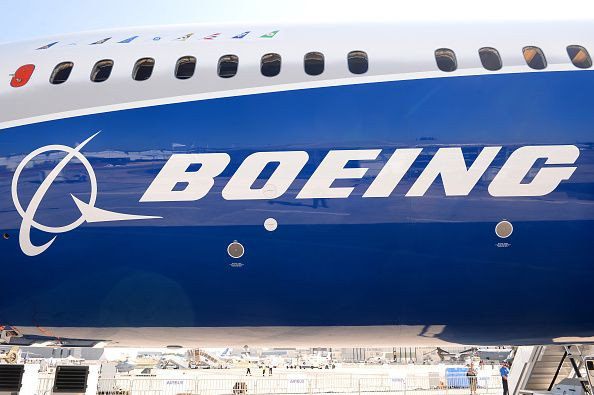September Aircraft Orders: Boeing Beats Airbus Again

Thus far, 2018 has been a great year for Boeing (NYSE:BA) in terms of aircraft orders. Neither rising global trade tensions nor the strong dollar has had a noticeable impact on demand for its commercial jets.
This article originally appeared in the Motley Fool.
This momentum continued in September. Meanwhile, Airbus (NASDAQOTH:EADSY) had another quiet month, allowing Boeing to extend its lead in the annual order race.
Boeing reports another solid month
During the first eight months of 2018, Boeing captured 581 net firm orders for commercial jets. About 73% of those orders were for the 737 narrowbody family, with the more expensive but slower selling 747, 767, 777, and 787 widebody families combining for the other 27%.
In September, Boeing increased its order total by 50 aircraft, giving it 631 net firm orders for the year. Its 65 gross orders were offset by 15 cancellations (or conversions).
On a net basis, slightly more than half of Boeing's September orders were for widebody aircraft. That's good news, not only because widebodies cost more than Boeing 737s, but also because the backlog for 737s is much longer than for Boeing's widebody models.
The biggest order in September came from the U.S. Air Force, which awarded Boeing an official contract for a batch of 18 KC-46 Pegasus tankers. These planes will be used by the military, but they are just (heavily) modified Boeing 767s, so they count as commercial jet orders.
There will be plenty of additional orders in this vein during the coming years, as the Air Force ultimately expects to acquire at least 179 KC-46s. It only has issued firm contracts for the first 52 aircraft so far.
The other key deal last month came from United Continental, which ordered nine more 787-9 Dreamliners. Boeing also received several smaller orders in September, mainly for Boeing 737s.
Not much doing at Airbus
Airbus received 37 firm orders in September, with the biggest highlight being a deal to sell 25 A321neos to Mexico's VivaAerobus. While that wasn't far behind Boeing's order total for the month, all 37 aircraft ordered were A320-family narrowbodies.
This means the quality of Airbus' order haul was much lower. Indeed, the European aerospace giant has nearly 6,000 A320-family orders on the books, and building enough to meet demand has been a far more challenging task than capturing orders in the first place.
Furthermore, Airbus' September performance extended a dry spell that has lasted all year. The company has booked just 256 net orders year to date, of which 198 (77%) are for A320-family aircraft. Weak order activity for the A330 and A380 families, in particular, has forced Airbus to reduce production of those models.
December magic won't win Airbus the 2018 order crown
In 2017, Airbus had a December to remember, booking 776 net firm orders during the month -- more than twice as many as in the first 11 months of the year combined. This allowed it to come from behind and surpass Boeing's full-year order total.
There's a good chance that Airbus will have another December order rush this year, if only because its sales force will be eager to close as many deals as possible by year-end. However, it's unlikely that Airbus will be able to overcome Boeing's massive advantage this time around.
While Airbus left the 2018 Farnborough Airshow with hundreds of commitments waiting to be turned into firm orders, Boeing has even more outstanding aircraft commitments. Furthermore, more than half of Airbus' December 2017 order volume came from a single 430-airplane deal with several airlines backed by Indigo Partners. Orders of that size don't come around very often. In fact, the Indigo Partners deal set a new record.
Airbus would do well to focus on quality over quantity during the last few months of 2018. The company desperately needs to rack up more orders for the A330 and A380 families -- ideally by lining up some new operators for those aircraft types. Capturing one or two significant orders for each of those two struggling aircraft families would be much more meaningful in the long run than an all-out effort to sell A320s just to beat Boeing for bragging rights in the annual order race.
Adam Levine-Weinberg has no position in any of the stocks mentioned. The Motley Fool has no position in any of the stocks mentioned. The Motley Fool has a disclosure policy.




















